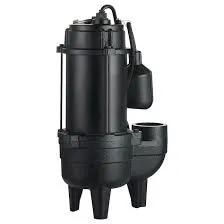Persian
- Afrikaans
- Albanian
- Amharic
- Arabic
- Armenian
- Azerbaijani
- Basque
- Belarusian
- Bengali
- Bosnian
- Bulgarian
- Catalan
- Cebuano
- Corsican
- Croatian
- Czech
- Danish
- Dutch
- English
- Esperanto
- Estonian
- Finnish
- French
- Frisian
- Galician
- Georgian
- German
- Greek
- Gujarati
- Haitian Creole
- hausa
- hawaiian
- Hebrew
- Hindi
- Miao
- Hungarian
- Icelandic
- igbo
- Indonesian
- irish
- Italian
- Japanese
- Javanese
- Kannada
- kazakh
- Khmer
- Rwandese
- Korean
- Kurdish
- Kyrgyz
- Lao
- Latin
- Latvian
- Lithuanian
- Luxembourgish
- Macedonian
- Malgashi
- Malay
- Malayalam
- Maltese
- Maori
- Marathi
- Mongolian
- Myanmar
- Nepali
- Norwegian
- Norwegian
- Occitan
- Pashto
- Persian
- Polish
- Portuguese
- Punjabi
- Romanian
- Russian
- Samoan
- Scottish Gaelic
- Serbian
- Sesotho
- Shona
- Sindhi
- Sinhala
- Slovak
- Slovenian
- Somali
- Spanish
- Sundanese
- Swahili
- Swedish
- Tagalog
- Tajik
- Tamil
- Tatar
- Telugu
- Thai
- Turkish
- Turkmen
- Ukrainian
- Urdu
- Uighur
- Uzbek
- Vietnamese
- Welsh
- Bantu
- Yiddish
- Yoruba
- Zulu
Telephone: +86 13120555503
Email: frank@cypump.com
دسامبر . 18, 2024 11:39 Back to list
Underwater Septic Pump Solutions for Efficient Wastewater Management and Disposal Systems
Understanding Submersible Septic Pumps An Essential Component for Efficient Wastewater Management
Submersible septic pumps play a vital role in the management of wastewater systems, particularly in residential and commercial settings where gravity drainage is not feasible. Unlike traditional septic systems that rely on gravity to operate, submersible pumps are designed to be submerged in the wastewater, making them an effective solution for pumping effluent to the drain field or to a treatment facility. This article delves into the various aspects of submersible septic pumps, including their functionality, advantages, installation, maintenance, and considerations for choosing the right pump.
How Submersible Septic Pumps Work
Submersible septic pumps are designed to function underwater, which helps in preventing potential issues like clogs and air lock. These pumps contain a sealed motor that is submerged in the effluent, enabling it to efficiently pump wastewater and sediments to the surface. The pump operates by converting electrical energy into mechanical energy, which drives an impeller. The impeller creates a centrifugal force, propelling the wastewater through the discharge pipe and away from the septic tank. This system is often used in alternative septic system designs or when the septic tank is situated lower than the leach field, necessitating a pumped solution for effective drainage.
Advantages of Submersible Septic Pumps
1. Space Efficiency Being submerged in the septic tank, submersible pumps do not require additional space above ground, leading to a more aesthetically pleasing system.
2. Reduced Noise Unlike above-ground pumps, submersible pumps operate quietly, as sound is absorbed by the surrounding wastewater, making them discreet and less intrusive.
3. Reliability Designed to work even under challenging conditions, submersible septic pumps are more resistant to clogging from solids due to their construction and operational design.
4. Protection from Elements As they are housed underwater, these pumps are less exposed to harsh weather conditions which can prolong their lifespan.
5. Energy Efficiency Many modern submersible pumps are designed to be energy-efficient, leading to lower operating costs.
Installing a Submersible Septic Pump
Proper installation is crucial for the effectiveness of a submersible septic pump. The installation process begins with selecting the right size and type of pump based on the specific needs of the septic system. A professional assessment is often recommended to evaluate the effluent flow rate, head height, and any unique site conditions.
submersible septic pump

Once the pump is selected, the basic installation involves
- Locating the septic tank Clear access to the tank is necessary for safe installation. - Creating a sump pit This pit allows the pump to be submerged effectively. - Connecting electrical supply A reliable power source must be established for the pump to function. - Testing the system Once installed, a thorough test should confirm that the pump operates smoothly without leaks.
Maintenance of Submersible Septic Pumps
To ensure optimal performance and longevity, regular maintenance of submersible septic pumps is essential. Here are some maintenance tips
1. Inspect Regularly Conduct visual inspections of the pump and surrounding area for any signs of leaks or damage.
2. Clean the Pump Remove any debris or buildup that may accumulate around the pump to prevent clogs.
3. Check the Electrical Components Ensure that all wiring and connections are secure and in good condition.
4. Listen for Unusual Noises Any abnormal sounds during operation may indicate an issue that requires professional attention.
5. Schedule Professional Inspections Periodic inspections by a licensed technician can help identify potential problems early on.
Conclusion
Submersible septic pumps are indispensable for effective wastewater management in various settings. When properly installed and maintained, they provide a reliable solution for moving effluent safely and efficiently. Whether for residential or commercial use, understanding the functionality and importance of submersible septic pumps can help property owners make informed decisions about their wastewater systems. Investing in a quality submersible pump not only enhances the efficiency of waste disposal but also contributes to a cleaner environment.
-
Heavy-Duty Mining Sludge Pumps - Wear-Resistant Slurry Handling
NewsAug.02,2025
-
Horizontal Split Case Pump with GPT-4 Turbo | High Efficiency
NewsAug.01,2025
-
ISG Series Pipeline Pump - Chi Yuan Pumps | High Efficiency, Durable Design
NewsAug.01,2025
-
Advanced Flue Gas Desulfurization Pump with GPT-4 Turbo | Durable & Efficient
NewsJul.31,2025
-
ISG Series Vertical Pipeline Pump - Chi Yuan Pumps | Advanced Hydraulic Design&Durable Construction
NewsJul.31,2025
-
ISG Series Vertical Pipeline Pump - Chi Yuan Pumps | Energy Efficient & Low Noise
NewsJul.31,2025










